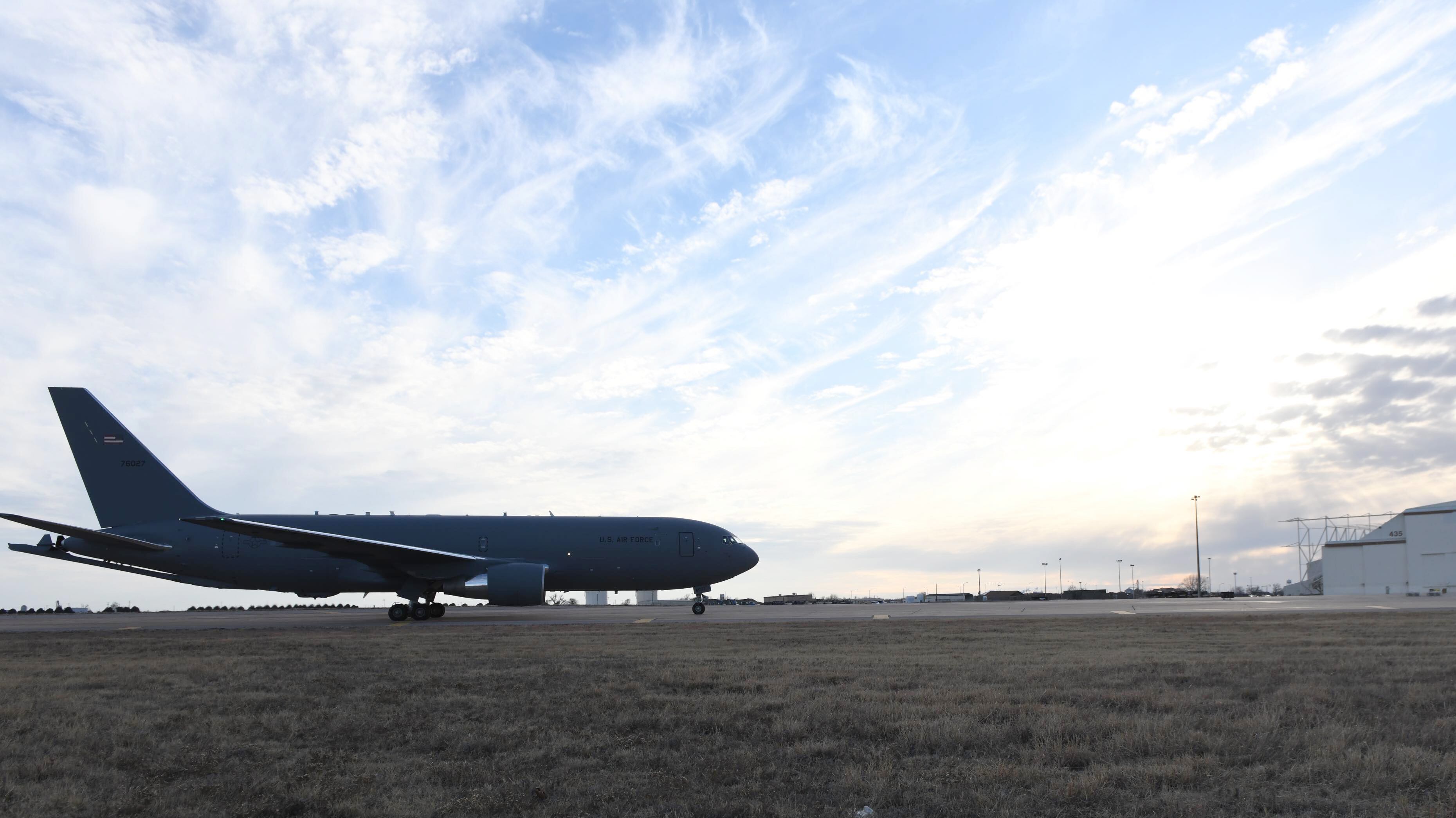The Air Force has once again halted deliveries of the KC-46 Pegasus tanker from Boeing after more foreign object debris, or FOD, was found in some closed compartments of the aircraft.
Air Force Secretary Heather Wilson confirmed in a House Armed Services Committee hearing on the budget Tuesday morning that deliveries had been stopped for a second time. Wilson told Rep. Joe Courtney, D-Conn., that the Air Force is putting corrective actions in place, including requiring all closed compartments be inspected, “to make sure that the production line is being run the way that it needs to be run.”
Courtney expressed concern that problems with the KC-46 appear to be getting in the way of the Air Force’s “optimistic projections” about delivery of the aircraft.
Air Force spokeswoman Ann Stefanek said in an email that the decision to stop accepting the KC-46s was made on March 23. But inspectors are still finding debris and other quality problems with the Pegasus, as recently as this week, she said.
“The Air Force again halted acceptance of new KC-46 tanker aircraft as we continue to work with Boeing to ensure that every aircraft delivered meets the highest quality and safety standards,” Stefanek said. “This week our inspectors identified additional foreign object debris and areas where Boeing did not meet quality standards.”
RELATED

Stefanek said the problems are not related to the aircraft’s design or engineering specifications. Boeing has so far delivered seven KC-46s to the Air Force.
“Air Force leadership is meeting with Boeing to approve additional corrective action plans before aircraft acceptance can resume,” Stefanek said.
In another budget hearing Tuesday afternoon, with the House Appropriations subcommittee on defense, Wilson said that problems with foreign object debris can range from a dropped wrench that gets left behind, to small pieces of aluminum left on surfaces. But if surfaces don’t get wiped down to clean off those aluminum fragments, they can get in the middle of things and cause serious problems in the aircraft, Wilson said.
Most recently, Wilson said, inspectors opened up closed compartments, such as those inside wings, to see if they had been wiped down. Those areas were better than some of the open areas, she said, “but they weren’t what we would expect.”
“That is a manufacturing discipline issue, on the line ... and we saw a breakdown there,” Wilson said. “We expect excellence in the manufacture of our aircraft, and we are working with Boeing on corrective action plans.”
Boeing said in a statement Tuesday that fixing this problem is a top priority for the company and the program.
“Boeing is committed to delivering FOD-free aircraft to the Air Force,” Boeing spokesman Charles Ramey said. “Although we’ve made improvements to date, we can do better.”
Ramey said Boeing is conducting additional company and customer inspections of the aircraft, and have put preventative action plans in place. Boeing has also added more training, put more rigorous clean-as-you-go practices into place, and is holding FOD awareness days across the company “to stress the importance and urgency of this issue.”
“Safety and quality are our highest priority,” Ramey said.
The Air Force on March 1 confirmed that it had suspended deliveries the first time because tools and other debris had been left in the planes, which could be a safety hazard. By that point, six tankers had already been accepted by McConnell Air Force Base in Kansas and Altus Air Force Base in Oklahoma.
Deliveries resumed March 11, after more than two weeks, when the seventh Pegasus arrived at Altus. The Air Force had received Boeing’s corrective action plan, and said it would closely scrutinize plans before accepting them.
U.S. Transportation Command said last month that it is preparing to delay the retirement of some KC-135 tankers, which are intended to be replaced by the KC-46, due to the problems and delays with the Pegasus’ deliveries. Technical problems had already delayed delivery of the first tanker more than two years from when it was originally expected.
Stephen Losey is the air warfare reporter for Defense News. He previously covered leadership and personnel issues at Air Force Times, and the Pentagon, special operations and air warfare at Military.com. He has traveled to the Middle East to cover U.S. Air Force operations.








